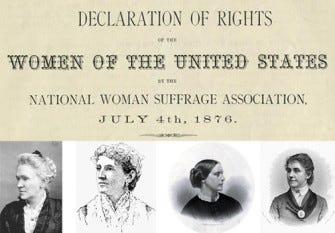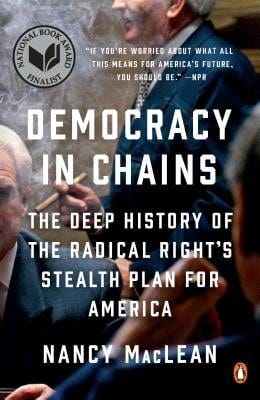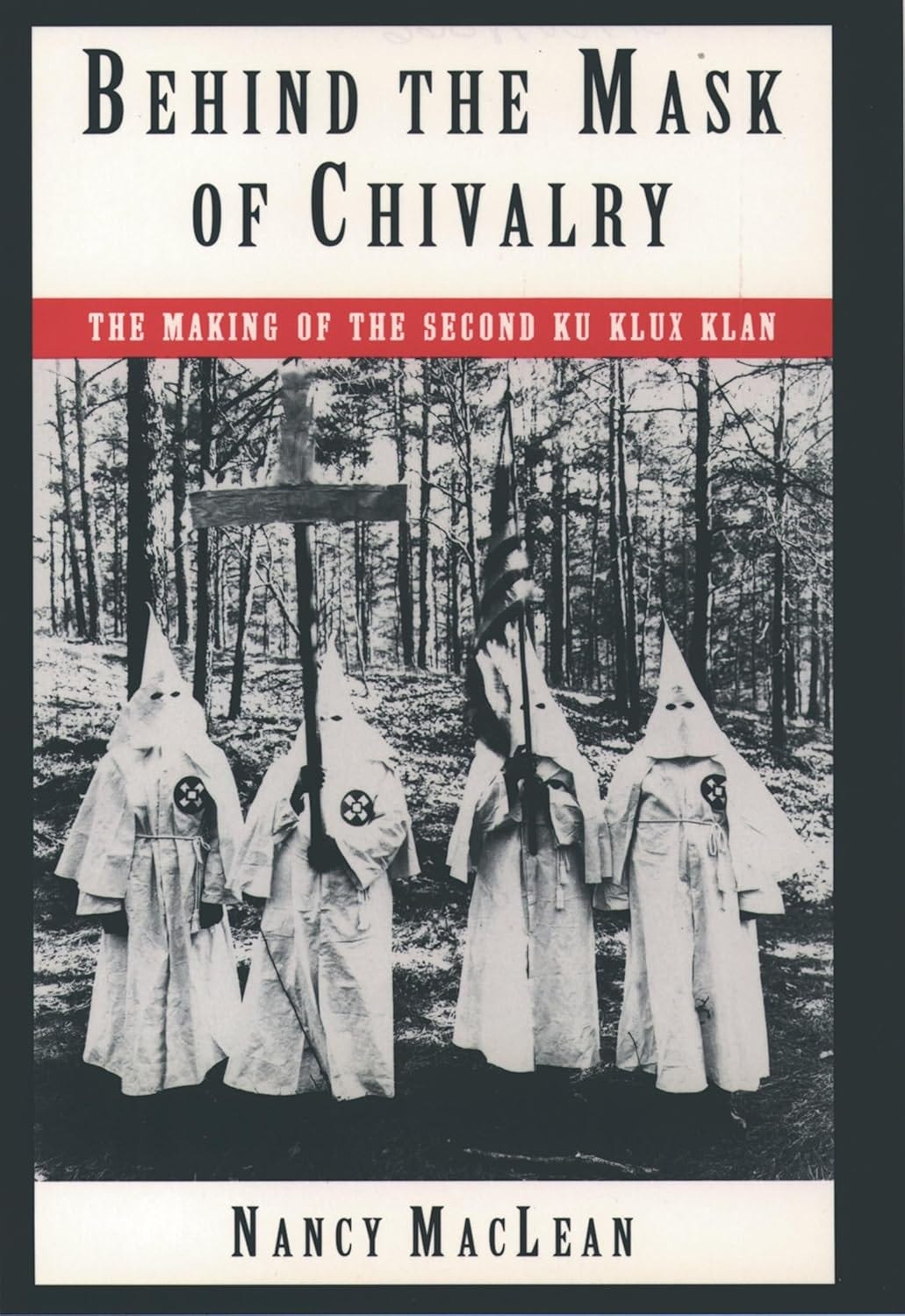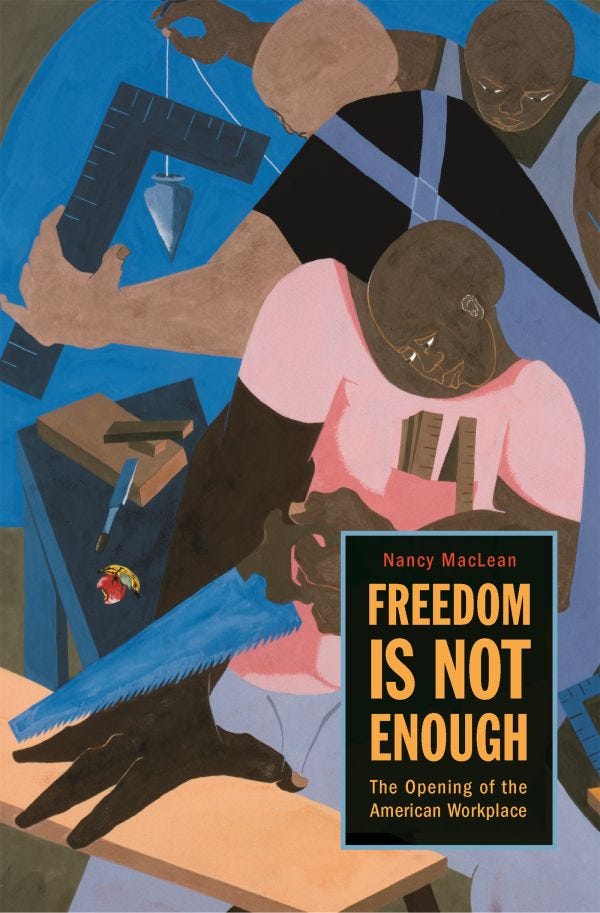History Teaches . . . On the Sad Non-Accident of Anti-Democratic Politics
Growling onto the Stage with Histories of Radical Conservatism, the 2d Klan, and Embattled Efforts to Open the Workplace
Historians are doing what we can in the present moment — and that is of course part of the reason that the current national administration wants to shut down honest teaching especially of U.S. history. Yesterday, I got to talk to law professor Jill Hasday about her forthcoming book, We The Men, about narratives of women’s progress that have served over more than a century to stand in the way of progress. I’m going to publish a q. and a. with Hasday soon but for the moment wanted to note one moment in the book that jumped off the page — when Susan B. Anthony, the apparently tireless and itinerant organizer of the post-1848 “woman movement,” organized what she termed a “Centennial screech for freedom,” a “Women’s Centennial growl” (Hasday, 46). Oh, honey. We hear you. Sometimes it feels like the only way to force the truth onto the main stage is to yell about it. And it definitely feels, as we approach the U.S. 250th, very much on the minds of the people actively dismantling American political traditions of liberty, equality, and democratic participation, like a time to rush the stage with real history to challenge the fakey-fakey.
Growling for Freedom: Matilda Joslyn Gage, Lily Devereaux Blake, Susan B. Anthony, & Phoebe Couzins, who used militant civil disobedience to present their petition for women’s rights at a U.S. Centennial celebration in 1876 [Jill Hasday, We the Men (Oxford U.P., 2025); the Zinn Education Project
Inspired by a group of colleagues who spoke last week on a panel about the Current Crisis sponsored by one of our good professional groups, the Labor and Working-Class History Association (LAWCHA, which takes an expansive view of what they consider “labor” or “working-class” history to include, for example, people who fight for and receive public benefits), I’m going to walk through some of the things history teaches from the work of my colleague Nancy MacLean, who was on the panel with me, Paul Ortiz of Cornell, and William Jones of the University of Minnesota:
Nancy MacLean teaches at Duke. She is probably best known for her book Democracy in Chains, from 2017, a remarkable study of conservative intellectuals and top-down activists who realized well before they had Donald Trump or J.D. Vance as front people for their efforts that their political agenda was . . . unpopular. They watched the civil rights revolutions of the 1950s-70s and the genuine progress that was made in that era against economic inequality - my partner, an anti-hunger advocate, has constantly to remind people that the United States defeated hunger toward the end of the 20th century, before then allowing it to re-emerge - as well as the constraints on corporate will and movements toward environmental protection. They didn’t like what they saw.
What anti-civil rights (anti-equality, pro-white supremacy) white Southerners, and very rich corporate titans, especially those like the Koch brothers, whose wealth was intimately tied to environmental destruction and obfuscating the vast damage to the earth and human thriving produced by our continued use of fossil fuels, concluded that what they really wanted was continued white supremacy, less environmental protection, more drilling, continued and expanded economic inequality (more for them), and fewer labor rights (which produce less control for the overly wealthy and less disproportionate wealth), and fewer civil rights for all. This was, they came to see, not a popular agenda. It would never be popular, even when dressed up in the most persuasive or misleading rhetoric they were able to devise.
What these middle-to-late-20th-century neo-neo-conservatives (or radical right-ists) wanted was never going to win democratic support, never through any honest or traditional means going to be sustainable at the ballot box. So they gave up on democracy. Openly. As a matter of political theory and strategy, not accidental or incidental to something else.
What MacLean teaches, her “Torah,” as I’ve learned to say in the Jewish biz, is that every time you think to yourself, Ha: How does that demand, to eliminate all the personnel of the Social Security Administration who distribute benefits and help people through the problems they encounter in claiming benefits to which they’re entitled, square with democracy? or, Huh: There’s no way they can get away with this climate denialist anti-science forever when the plain truth in front of our eyes is that our northlands are warming and flooding while our southland are frying, burning, and turning to ash and dust! Or even, I hate to say, Yikes: RFK, Jr., seems hellbent on killing a bunch of American children. That’s incredibly horrible - but there’s no way the Republican death cult can get away with that at the polls!!! You’re right. And by design, these folks don’t much care, because they’re not playing the game of winning democratic majorities — even gerrymandered, obfuscated, lied-to majorities — any more, not really. They know they can’t win. They tired of trying to win. They want to win another way, without having to go to the trouble of persuading or even deluding a mass public of people whose interests diverge from their own.
MacLean is also well known for a disturbingly evergreen book from the 1990s, Behind the Mask of Chivalry, a study of the Ku Klux Klan of the 1920s. That book is about the Klan as a mass movement, a social movement even, I guess we’re forced to say, one that had internal cohesion based on the shared myth of victimization of its members and its external enemies and causes, which were - you guess it - not just racially and religiously othered but also identified by their supposed moral, sexual, familial, and gendered behavior. And never separate from perceived threats to male power, white race-based power, (upper) middle-class cultural and economic power, established power, Christian power. So, you know . .
The MacLean book that came in between these two was a more optimistic study, although one that is also deeply relevant: In somewhat happier times, she wrote Freedom is Not Enough, a book about the concrete value of legal and governmental efforts to overcome discrimination in the workplace — especially through Title VII, the part of the Civil Rights Act of 1964 that has to do with employment, and the only part of the law that includes sexual/gendered inequality as an object of government concern, as well as discrimination on the basis of race, color, religion, and national origin.
MacLean demonstrates that actions inside and outside of court, thanks to the national government agency (remember when we wanted these to work better and weren’t forced to defend their very existence?) the Equal Employment Opportunity Commission, created to fulfill the mandate of Title VII, as well as policies of Affirmative Action such as were mandated by President Lyndon B. Johnson’s Executive Order 11246, which set the government against discrimination in federal employment and - more sweepingly - in the employment policies of all firms that were contractors working with the U.S. national government.
Maybe everyone knows where this is ending: President Trump issued an Executive Order almost immediately after taking in January that rescinded that Johnson-era guidance — the one from Jan. 21 that claimed to end “illegal discrimination” (against those who have NOT historically experienced discrimination, I suppose that means, white, straight, Protestant, able-bodied, cisgender, native-born, etc.) and restore “merit-based” employment practices. The ones that existed before the American workplaces “opened,” in MacLean’s phrase, so, in other words, it was an Executive Order with the ambition to close the American workplace.
Starting as she did as an historian of the U.S. South and the long shadows of post (?)-Confederate white supremacy, perhaps Nancy MacLean would appreciate ending with Faulkner: “The past isn’t ever dead,” the great yet problematic writer wrote in Requiem for a Nun. “It isn’t even past.”







